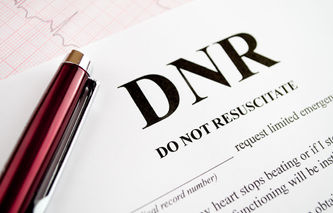Definition
The term fractional discretion order refers to broker instructions that allow modification of a buy or sell price within a fraction of a point. Traders will place fractional discretion orders to guarantee execution.
Explanation
If a trader would like to guarantee execution of an order, and has sufficient trust in their broker's judgement, they have the option of placing a fractional discretion order. This type of trade gives the broker discretion to modify a buy or sell order by a fraction of a point. In terms of stocks, a fraction of a point would be less than $1.00.
As is the case with Not-Held orders, by placing their faith in the ability of a broker, the trader is also agreeing to hold them harmless if they need to use their discretion to execute the order.
Example
A trader would like to buy 1,000 shares of Company XYZ's stock, which has a current market price of $25.00 per share. However, the company's stock price has been relatively volatile. The trader trusts the judgement of their broker, so a fractional discretion order is placed to buy 1,000 shares of stock at $25.00 with $0.25 discretion. This allows the broker to execute the buy order at a high of $25.25 or a low of $24.75.


